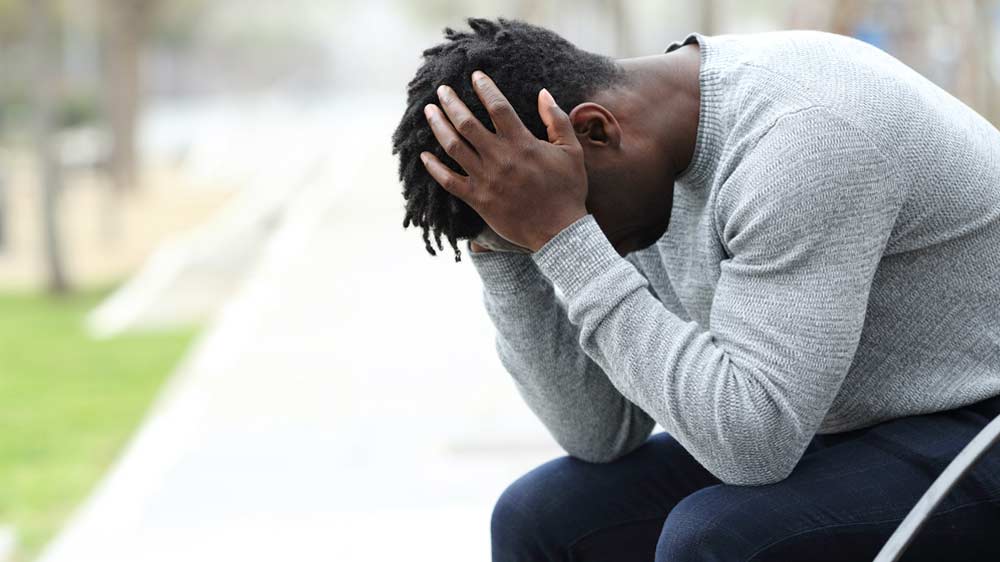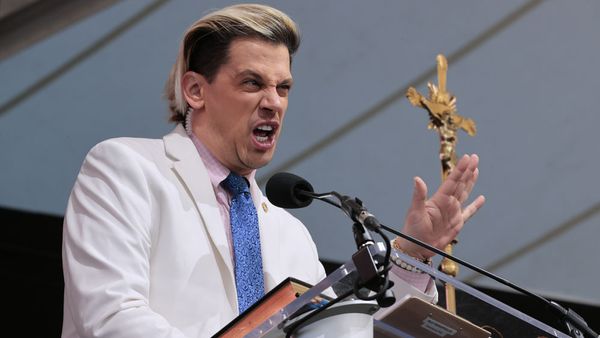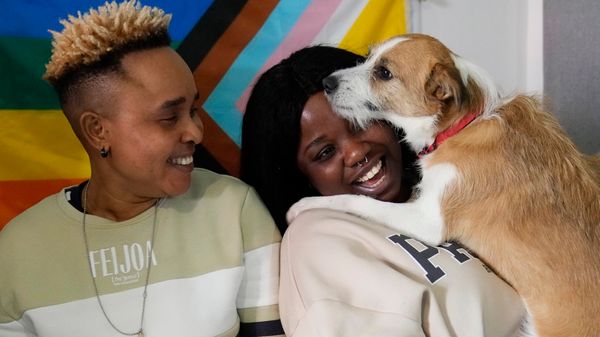September 9, 2011
South Africa's New Chief Justice Appointed
Kilian Melloy READ TIME: 3 MIN.
President Jacob Zuma on Thursday appointed Mogoeng Mogoeng as chief justice of South Africa, casting aside accusations that the judge has been lenient on rapists and is homophobic.
Critics of the new Chief Justice Mogoeng have said they will fight his appointment all the way to the Constitutional Court, which he now commands. Only a handful of organizations, including the Black Lawyers Association, had supported Mogoeng.
Social justice, women's interest and gay rights groups, opposition parties, three South African bar associations and nine U.S. law professors all had written submissions against the nomination. Three women Nobel laureates joined them on Wednesday to urge Zuma not to go ahead with the appointment.
Zuma told a news conference he had taken into account the submissions to the commission that interviewed Mogoeng for the position for two days over the weekend. He then thanked Mogoeng for the dignity with which he had met the barrage of criticism.
"Both the chief justice and his deputy give us confidence that our judiciary is indeed in good hands," he said in a diplomatic reference to Judge Dikgang Moseneke, the deputy who many said should have been elevated in Mogoeng's place.
Mogoeng, 50, took the podium to thank Zuma for his "trust and confidence" and promised not to betray it.
"I also vow to be faithful to the Republic of South Africa, to uphold and protect the constitution and the human rights entrenched in it, and to administer justice for all persons alike without fear, favor or prejudice, in accordance with the constitution and the law," said South Africa's first jurist.
Critics point to rulings in which Mogoeng quashed or reduced jail sentences of men who raped women but increased the jail sentence of a man who raped a man.
He is accused of perpetuating myths about rape, such as in one ruling excusing a husband who raped his wife because he said the man had been tempted because the woman was wearing a nightdress and panties, and suggesting that sex between a husband and his wife could not be considered rape.
"Justice Mogoeng has demonstrated that he cannot be relied upon to champion the rights of one half of the population," Sonke (All) Gender Justice Network said Wednesday.
South Africa has one of the most liberal constitutions in the world, including tough rape laws that have failed to halt the nation's increasingly high rate of sexual crimes. Only a small fraction of reported rapes lead to prosecutions.
During his two years in the Constitutional Court, Mogoeng has made two dissenting judgments that fed speculation he is extremely conservative and perhaps homophobic - charges he denied. He is a pastor in the Winners Chapel International Church, which offers to save souls, drive out disease and cure "deviations," including homosexuality, through prayer and counseling.
Mogoeng told the commission that interviewed him that he believes God wants him to be the chief justice, and that it is his constitutional right to embrace his Christian faith.
"I did and do so mindful of the fact that our constitution was not meant to benefit Christians to the exclusion of all other people who either belong to other faiths or do not subscribe to any religion at all," he added.
Mogoeng has a master's degree in law from the long-distance University of South Africa and began his career as a Supreme Court prosecutor in 1986. He was made a judge of the Labor Appeal Court in 2000 and judge president of the provincial North West High Court in 2002 before being appointed to the Constitutional Court two years ago.
Kilian Melloy serves as EDGE Media Network's Associate Arts Editor and Staff Contributor. His professional memberships include the National Lesbian & Gay Journalists Association, the Boston Online Film Critics Association, The Gay and Lesbian Entertainment Critics Association, and the Boston Theater Critics Association's Elliot Norton Awards Committee.







